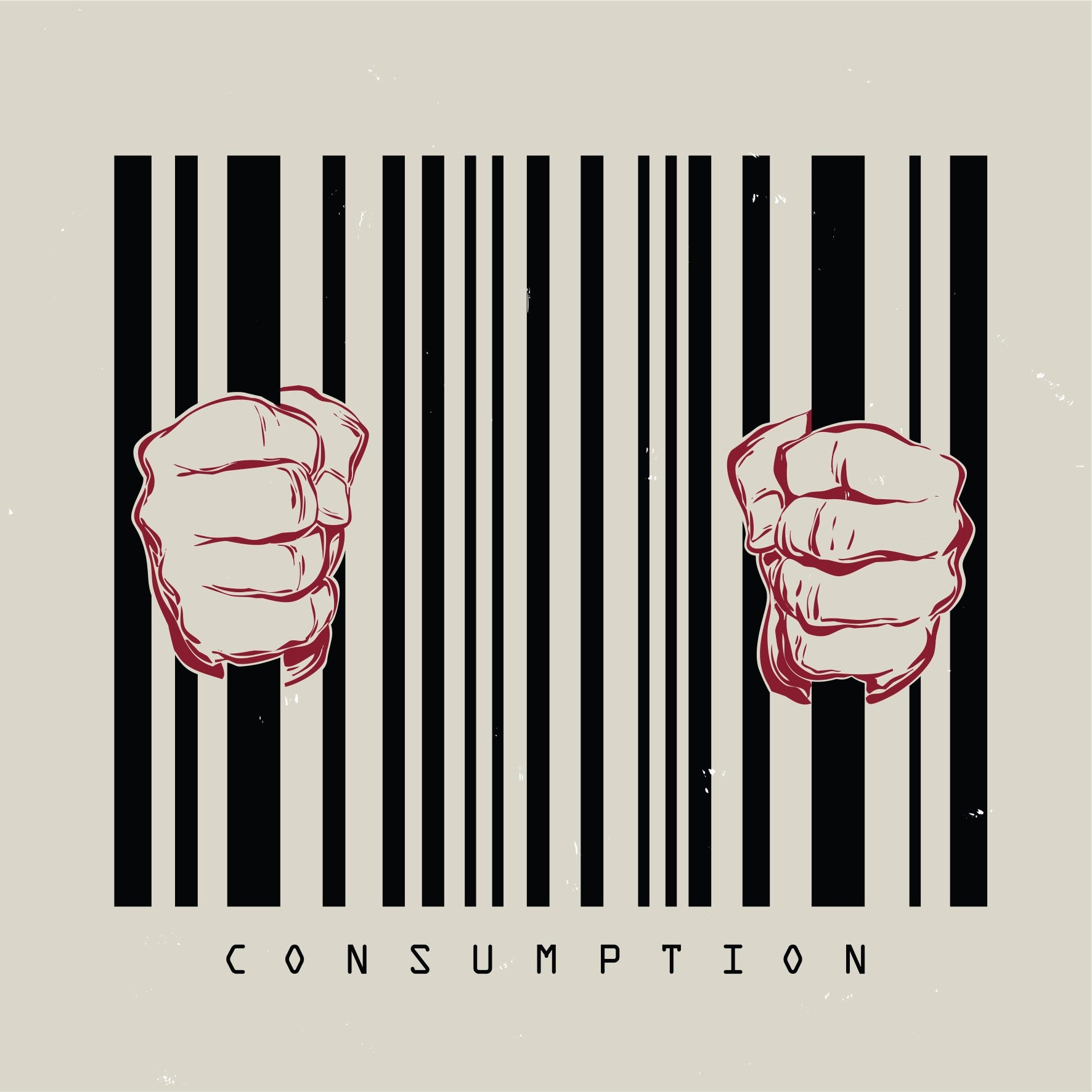- As the USPS becomes the latest target of the Trump administration, with disastrous implications for this November’s election, a campaign to buy postal merch in order to save the institution from economic hardship has spread like wildfire on social media.
- Trump has repeatedly challenged mail-in voting, which is set to be crucial given the dangers of voting in person during the coronavirus pandemic, and his postmaster general has removed sorting machines and blue mailboxes and declined to approve overtime – all measures that could leave votes uncounted.
- Press Secretary Kayleigh McEnany said this week that Trump may not accept the results of the election, regardless of which votes get counted.
- The youth of the country don’t seem to know what else to do except buy merchandise in protest.
- Visit Business Insider’s homepage for more stories.
Things are bleak in America. How bleak, you ask? Things have gotten so bad that youthful rebellion these days consists of buying up USPS hoodies to save the 2020 presidential election.
Business Insider’s Alanis King reported in late July that a fashionable white, envelope-covered crop top had just hit the USPS online store and was a perfect way to support the beleaguered institution.
By early August, the crop top was sold out and The New York Times was calling USPS “the hottest new label.” Business Insider’s Bethany Biron reported that Urban Outfitters even tried to get in on the act but faced backlash when consumers realized none of the money was going to the institution – the latest in a long line of questionable fashions from the retailer, as reported by Biron and Hillary Hoffower.
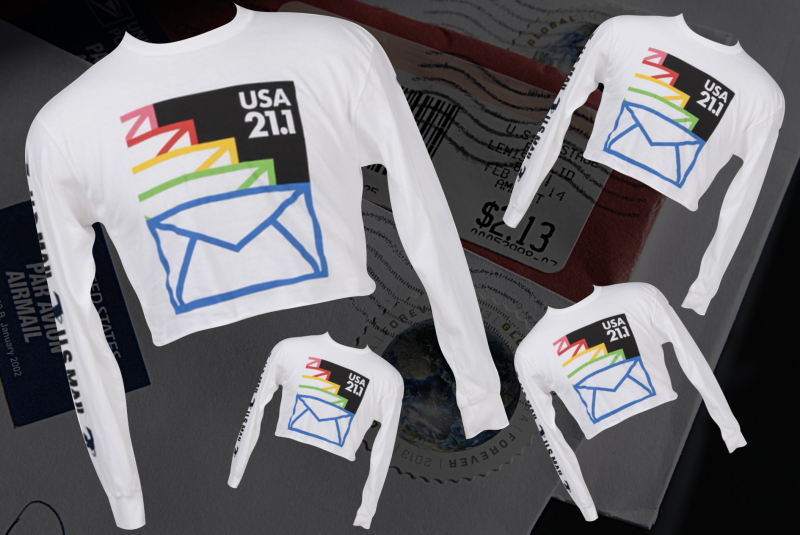
This would all be great if it weren't for the fact that, heading into a pivotal election with a beloved federal institution being weaponized to potentially imperil votes, the best response the youth of America has is: let's buy more stuff.
The solution to democracy in danger, it seems, is online shopping.
The post office has always been a political hot potato
Founding father Thomas Jefferson was the first to weaponize the post office, turning it into a den of political patronage that lasted for decades. Although he once wrote to James Madison that he feared post roads becoming a "source of boundless patronage to the executive," Jefferson nevertheless removed members of another political party from the agency and "brought political patronage to a new level of both sophistication and scope," per Encyclopedia.com.
As post office historian Winifred Gallagher told The New Yorker's Isaac Chotiner, the post office, which is literally written into the Constitution, was something like the internet of its day, connecting Americans to information on a level unknown anywhere else in the world.
Since email took off in the last few decades, and because of an onerous law passed in 2006, the post office has also been an unprofitable millstone around the neck of the federal government. Privatizing it has been a popular cause on the right wing since the days of William F. Buckley - all the way back in the late '60s and '70s.
But even with this long history of political interference and economic woes, the USPS now faces an unprecedented threat. President Trump's postmaster general Louis DeJoy, until being called in front of congress this week, was taking measures ahead of this November's election (billed as an "overhaul") that could leave many mailed-in votes uncounted.
Even after congress grilled DeJoy over these plans, House Speaker Nancy Pelosi called him for further clarification, and reported that he had "no plans" to take the necessary action to make sure every vote is counted. Of course, mail-in voting is particularly important during a global pandemic when it's dangerous to vote in person. The integrity of the 2020 election is therefore very much in danger.
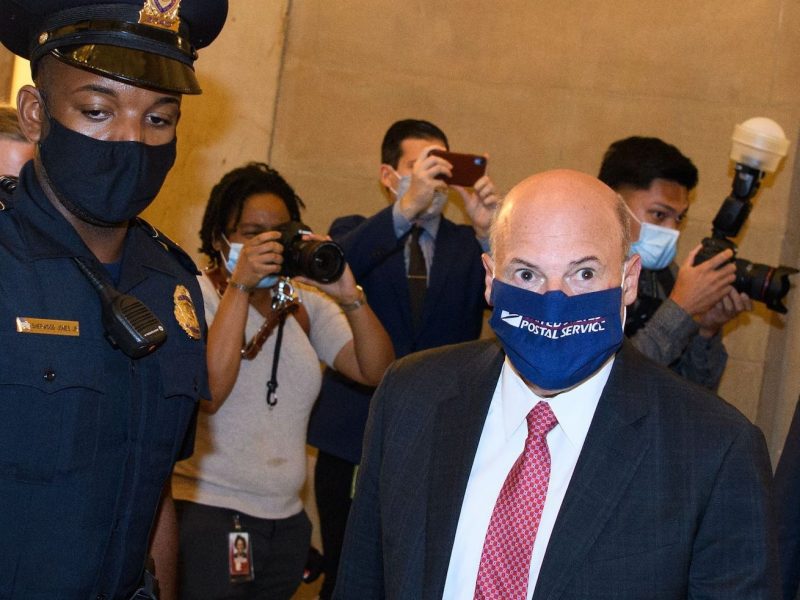
What is to be done? Gen Z and other millennials suggest shopping
Envelope-covered crop tops might be going viral, but they're hardly the only USPS merchandise people are buying en masse.
Twenty-year-old gun control activist David Hogg tweeted in late July for his 1 million followers to buy stamps and merch from the USPS. Meanwhile, New York Rep. Alexandria Ocasio-Cortez also told people to check out the postal store, according to the New York Times' Jackie Snow.
As Lauren Blacksell, a 21-year-old who has been trying to buy the sought-after crop top for weeks, put it, "The USPS needs saving and, as expected, many are sending over petitions - however, buying merch seems to work better." She told Business Insider that there "seems to be no other way right now to help."
But as the great Black American poet Audre Lorde once wrote, the "master's tools will never dismantle the master's house. They may allow us temporarily to beat him at his own game, but they will never enable us to bring about genuine change."
In other words, you can't fight fire with fire. Seeking to solve a governmental crisis with a call to commercial action is beside the point.
Fashion and consumerism aren't new forms of protest
Since at least the time of the sans-culottes in revolutionary France, and likely throughout all of history, what you wear (or don't) has helped to define where you stand on political issues.
Clothing as protest was turbo-charged by something that seems eternal but is actually just a century old or so: consumer capitalism. After World War I, as noted by Halina S. Brown for Fast Company, the rise of modern advertising and widespread consumer credit, married with the industrial capacity to mass-produce goods, created the modern consumer economy.
Americans have since come up with all sorts of creative ways to express themselves - and to protest - through consumption.
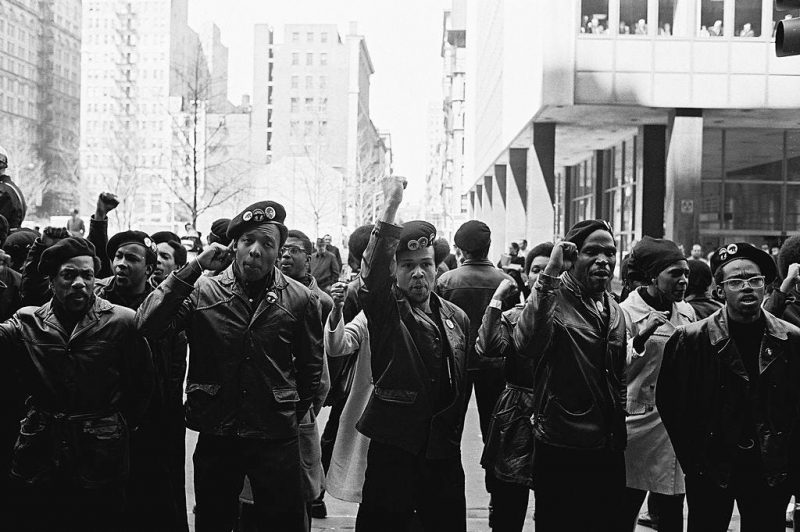
At the Democratic convention this week, Michelle Obama made headlines for sporting a $430 necklace featuring the word "VOTE." And 100 years ago this week, suffragists wore white as they protested for women's right to vote. The Black Panther Party of the 1960s' message of "Black Power" and social and economic liberation was clearly advertised by members' all-black attire, accented by a slightly tilted black beret.
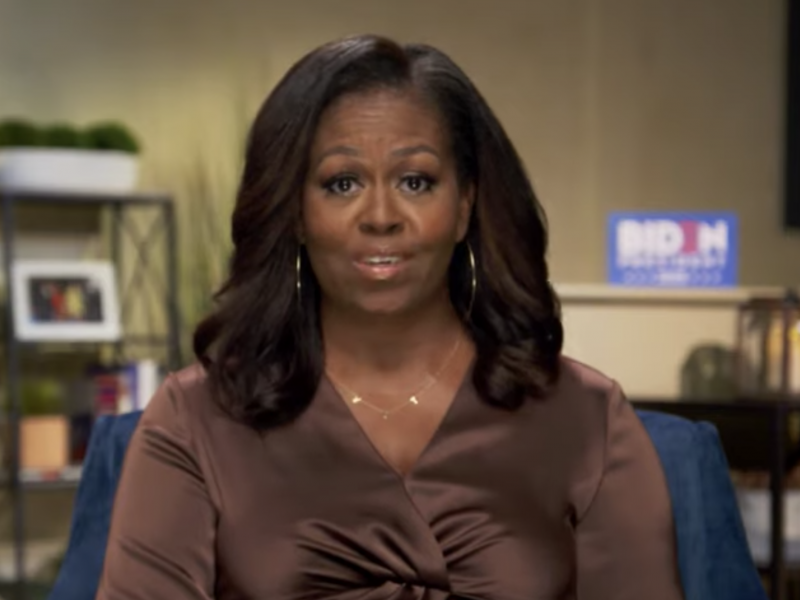
Even early punk rock, which preached a nihilistic political philosophy against the backdrop of economic stagnation in the late 1970s, was defined by the leather jackets of New York's Ramones and the Vivienne Westwood-clad Sex Pistols of London.
But will buying USPS-branded apparel actually help save the democracy?
Emma McClendon, a fashion historian and former associate curator of costume at The Museum at FIT, told Business Insider that in recent years, people have become increasingly conscious of the meaning behind the clothes they wear.
There has been a massive pivot toward sustainability, as more and more consumers align themselves with founders and brands with similar ideologies and missions. There are the pink-knitted hats made famous from the Women's March shortly after Trump's election, and the rise in support for Black-owned businesses after the death of George Floyd.
USPS fits into this trend, McClendon said.
"Buying these garments and wearing them openly is about showing support for this cause, not just with your mind and ideologically, but also with your wallet," she said.
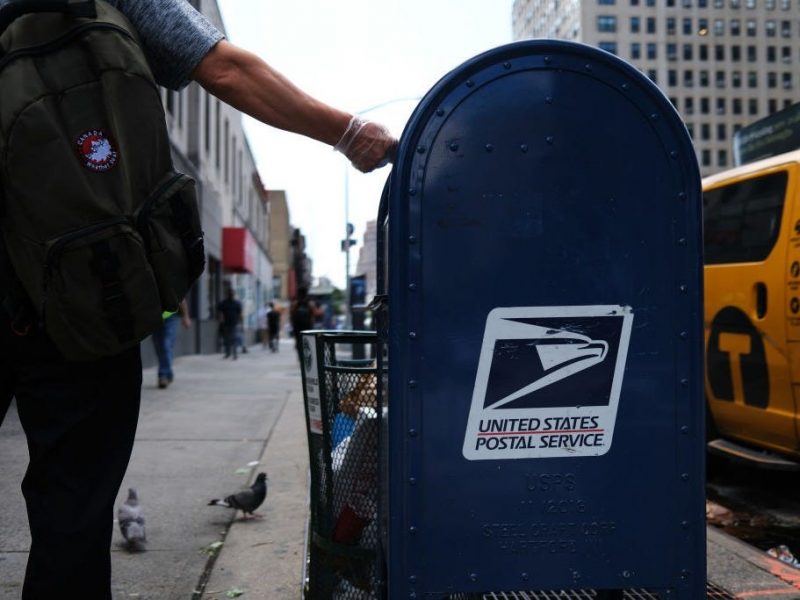
On the business side, the Trump years have demonstrated clearly that "wokeness" is good for business, especially as the target retail demographic has become much younger and much more progressive than the median voter. Now, brands are transforming on the fly to incorporate an activist message into a profitable business strategy.
Perhaps the most famous recent example was Nike's embrace of Colin Kaepernick. But there have been many others, such as the high-end cashmere brand Lingua Franca, which sells sweaters embroidered with "We The People," and donates proceeds from its sales to the Food Bank for NYC. 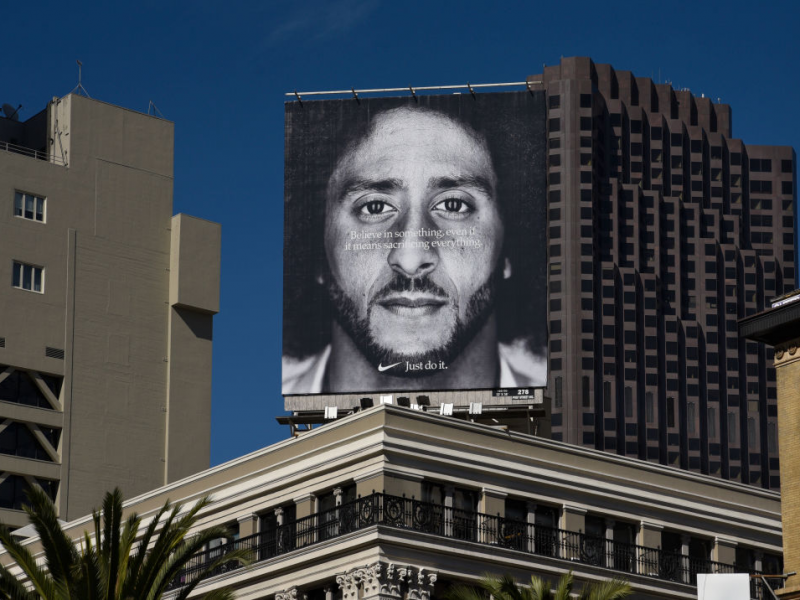
Consumer capitalism has accomplished great things, no doubt. The thirst for American blue jeans behind the Iron Curtain was a crucial cultural weapon in the US ultimately winning the Cold War.
And even now, in the depths of this coronavirus-led recession, the relentless appetite of the American consumer has surprised economists and experts of all stripes, fueling the possibility of something approaching the V-shaped recovery that looked lost when the country's reported coronavirus infections spiked in late June.
The shortcomings of Americans buying things as a dominant cultural philosophy has also undeniably led to some perverse outcomes. For one, the monetization of social media, supported by ads, enabled the profusion of fake online news in that election cycle and contributed directly to the election of Trump in 2016, and today's post office being in peril. (That also happens to be bad news for all of digital media, including this website, and for an informed citizenry.)
That leads back to the matter of the post office, an institution that survives from America's pre-consumerist, pre-modern past. Can the 21st-century consumer save this election, or this institution, by purchasing a crop top?
Former President Barack Obama doesn't seem to think so, saying last night at the Democratic convention that "democracy was never meant to be transactional" and that "it requires an active and informed citizenry." Until the real issues that have put the post office in danger are faced and fixed, USPS crop tops and tote bags are going to have to do - even if this brand of consumer activism is just a band-aid over a bullet hole.
